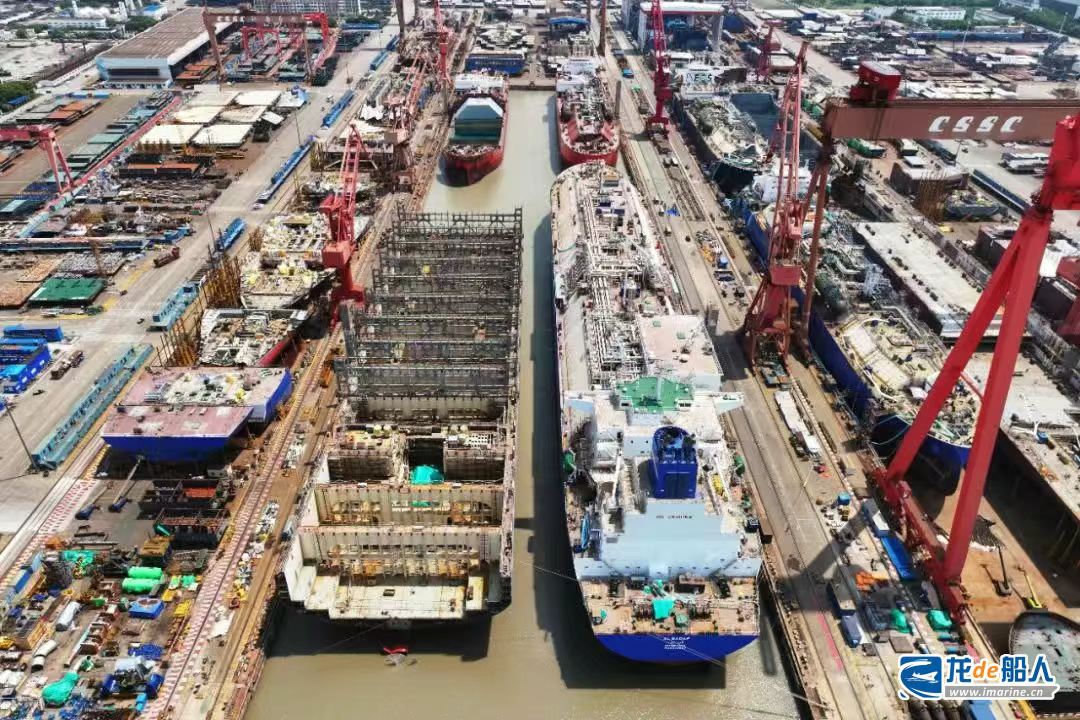In 2025, there is a downward trend in global shipbuilding activity, with investment sentiment in major ship-owning countries dampened by various uncertainties.

Data from Allied Shipbroking, a leading Greek shipbroker, showed that in the first four months of 2025, the global newbuilding market placed orders for only 439 ships, compared to 980 in the same period of 2024 and 809 in the same period of 2023, a significant decline in global newbuilding orders.
Allied Shipbroking’s analysis agency pointed out that the current level of global new ship orders is the same as in 2020, and the industry is filled with general caution. Shipowners’ hesitation is mainly due to macroeconomic pressures, increasingly complex regulatory frameworks and increasing geopolitical uncertainties.
So far this year, global new ship orders have been mainly concentrated in the container ship and tanker markets: in the tanker field, new ship orders account for 24% of the global total orders, and the order-to-fleet ratio is 13%; in the container ship field, new ship orders account for 14% of the global total orders, and the order-to-fleet ratio is 13%.
By contrast, bulk carrier owners remain cautious in terms of new ship orders, which accounted for 22% of total global orders, with an order-to-fleet ratio of 10%.
In the current market environment, major global shipowners are making strategic adjustments. Among the world’s top shipping investors, Greek and Chinese shipowners have reduced new shipbuilding activities and strategically adjusted their portfolios.
In the first four months of this year, Chinese shipowners ordered a total of 69 new ships, a significant decrease from the same period last year (146 ships), but still ranked first. In terms of the number of ships, the orders of Chinese shipowners in the first four months accounted for 16% of the global total, an increase from 15% in 2024. Oil tankers are still the first choice of Chinese shipowners, accounting for 52% of the orders in the first four months, followed by container ships (16%) and bulk carriers (13%).
Greek shipowners followed closely with 65 new ships, a significant decrease from the same period last year (112 ships). However, the share of Greek shipowners in the total global order volume increased from 12% in 2024 to 15% in 2025. Tanker and container ship orders accounted for 49% and 43% respectively. New order activities in the dry bulk carrier and liquefied gas carrier markets were significantly weak, and these two markets have always been the main investment directions of Greek shipowners.
Overall, oil tankers are the key investment direction for both China and Greece, accounting for about 50%.
During this period, Japanese shipowners placed orders for a total of 23 new ships, accounting for 5% of global orders. Orders for bulk carriers, oil tankers and liquefied gas tankers accounted for 39%, 22% and 18% respectively.
Allied Shipbroking pointed out: “Greek shipowners are adopting a highly selective investment strategy, turning their ordering activities to shipyards with reliable technology and compliant regulatory requirements.
Indeed, the U.S. policy of imposing port fees on ships built in Chinese yards has revitalized interest in investing in South Korean yards, despite their higher shipbuilding costs than in China. However, China remains by far the preferred shipbuilding destination for Greek shipowners.”


